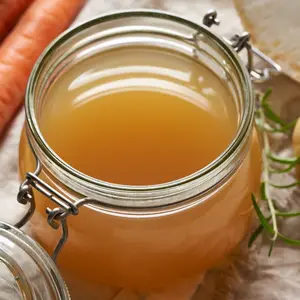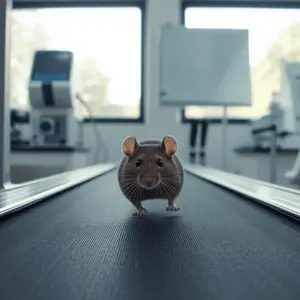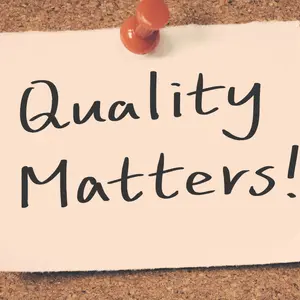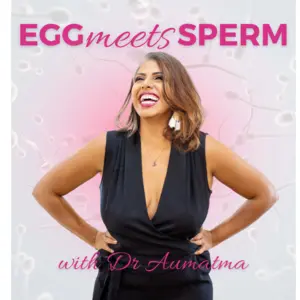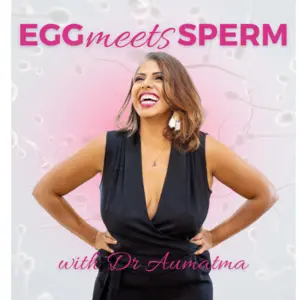
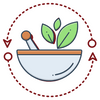
Complementary and Alternative Medicine (CAM)

Complementary and Alternative Medicine (CAM)
Holistic Solutions for Erectile Dysfunction
by Hannah Tytus
Erectile dysfunction (ED) is the inability to achieve or maintain an erection sufficient for sexual activity. Affecting up to 30 million men in the United States, ED can significantly impact quality of life and may be an early warning sign of underlying health issues, such as cardiovascular disease, diabetes, or nerve damage. Consulting a healthcare provider to help identify the root cause is essential for both diagnosis and safe, effective treatment.
While prescription medications are common treatments for ED, many men explore complementary or alternative therapies, lifestyle changes, or over-the-counter supplements. However, caution is warranted: ED products and supplements marketed as “natural” or “herbal Viagra” may be ineffective—or even dangerous.
ED has both physiological and psychological causes. Western medicine focuses on treating ED through medications like phosphodiesterase type 5 inhibitors (e.g., Viagra, Cialis) and devices such as vacuum erection devices. Traditional and complimentary medicine emphasize restoring balance through holistic treatments, including herbs, exercises, and energy healing practices.
Risk Factors For ED
Erectile dysfunction occurs when there is insufficient blood flow to the penile tissues, often caused by vascular, neurological, hormonal, or psychological factors. Common contributors include endothelial dysfunction, reduced nitric oxide availability, nerve damage, and medical conditions such as diabetes, hypertension, or cardiovascular disease. ED is closely connected to the cardiovascular system; in fact, it can serve as an early warning sign of poor cardiovascular health or the development of cardiovascular disease.
ED risk factors may be biological, environmental, or behavioral and include:
- Chronic health conditions: type 2 diabetes, hypertension, high cholesterol, and prostate disorders
- Hormonal imbalances: endocrinologic disorders such as low testosterone
- Medications: certain prescription drugs that interfere with erectile function
- Lifestyle habits: smoking, alcohol use, poor diet, and inactivity
- Psychological issues: depression, anxiety, general stress, and relationship stress
Though more common with age, ED does not have to be an inevitable part of getting older. Understanding our body and biology can help us make informed decisions
Lifestyle And Behavior
Sleep
Sleep plays a critical role in overall health, including sexual function. Research has found that sleep disorders, such as obstructive sleep apnea, are associated with an increased risk of ED. In fact, ED, lower urinary tract symptoms, and low testosterone levels often worsen as sleep quality declines.
Poor sleep hygiene is one common but overlooked contributor to unsatisfactory sleep. Sleep hygiene refers to the habits and environmental factors that support quality sleep and healthy daytime alertness. Inconsistent sleep schedules, use of electronic devices before bed, daytime naps, and consumption of caffeine or nicotine late in the day can disrupt the body’s natural sleep-wake rhythm. Modern lifestyle habits—especially the widespread use of phones, laptops, and televisions in the bedroom—have made it harder to get restful sleep. These behaviors can interfere with melatonin production, delay sleep onset, and fragment deep sleep cycles.
Improving sleep hygiene is a simple and effective strategy to support sexual and hormonal health. Helpful habits include maintaining a consistent bedtime, limiting screen use at least one hour before sleep, avoiding stimulants late in the day, and getting natural sunlight exposure soon after waking to regulate the body’s circadian rhythm. Experts also recommend using the bedroom only for sleep, sex, and otherwise relaxing activities to reinforce the brain’s association of the bedroom with rest.
Interestingly, male fertility has been linked to sleep duration in a non-linear way. Research suggests that both too little and too much sleep may increase the risk of infertility, while sleeping 7 to 8 hours per night appears to be optimal.
Prioritizing high-quality sleep can improve not only energy and mood, but also hormone levels, libido, and erectile function.
Mental Health & Emotional Wellbeing
Anxiety and stress can contribute to erectile dysfunction by causing blood vessel constriction and reducing nitric oxide production, which impairs circulation and makes it more difficult to get an erection. Therefore, interventions which reduce stress and anxiety, such as meditation or talk therapy, can potentially improve ED symptoms when used in conjunction with medical treatment.
Psychological interventions for erectile dysfunction focus on addressing the mental and emotional factors that can affect sexual performance. Techniques like cognitive-behavioral therapy (CBT) help reduce anxiety, challenge negative thoughts, and improve communication and intimacy between partners. These therapies can be especially helpful when combined with medical treatments, as they can boost the effectiveness of physical therapies, improve adherence to treatment, and enhance the overall sexual relationship. Involving a partner in the process is often recommended to work together on treatment decisions and strengthen the relationship.
Exercise
Because of its intrinsic connection to blood flow and the cardiovascular system, exercise may be helpful for managing ED. A 2023 meta-analysis published in Sexual Medicine found that regular aerobic exercise—such as walking, running, dancing, and yoga—significantly improved erectile function scores and that the effect was more pronounced in men with more severe ED. In a 2018 review of existing studies, sexual health researchers recommended at least 40 minutes of moderate-to-vigorous aerobic exercise four times a week to decrease ED.
For some men, musculoskeletal abnormalities may contribute to their ED. A 2019 systemic review of ED studies involving pelvic floor muscle training found that such training appears to be effective in treating ED, although training protocols varied significantly.
Diet
Research shows that a healthy diet can lower the risk of developing ED and improve existing ED symptoms. A balanced diet rich in fruits, vegetables, whole grains, and lean proteins can improve cardiovascular health, which is critical for blood flow.
Conversely, food and drinks that raise the risk of diabetes, heart disease, and obesity can also increase the likelihood of experiencing erectile dysfunction. It's best to avoid or limit items high in saturated fats, such as red meat and fried foods, as well as full-fat dairy products like whole milk, cream, butter, and cheese. Refined carbohydrates, including pastries, chips, white rice, and candy, should also be consumed in moderation. In addition, foods and beverages that are high in sodium and added sugars, packaged products like lunch meats and snack bars, and alcoholic drinks can contribute to the problem.
Studies suggest that following a Mediterranean diet, rich in fruits, vegetables, olive oil, and fish, can lead to better erectile function. The diet's focus on nitric oxide production and antioxidant properties is believed to play a key role in this improvement. Nitric oxide is a key molecule in improving blood flow, which is essential for an erection, and it can be increased through the diet or supplementation of amino acids.
Complementary Treatments for ED
Amino Acids & Nutritional Support
Amino acids are fundamental building blocks of proteins. Amino acids are like the letters of the alphabet that make words (proteins), which then get turned into sentences that provide instructions for tasks in the body (proteins linking together to form enzymes, hormones, antibodies, and more). Amino acids are critical for various bodily functions, including making proteins, repairing tissues, and absorbing nutrients.
L-citrulline and L-arginine are amino acids that help the body make nitric oxide—a molecule that relaxes blood vessels and improves blood flow. Good circulation is essential for getting and maintaining an erection.
In the body, L-arginine is directly used to make nitric oxide, but when taken as a supplement, it does not absorb well and breaks down quickly in the digestive tract. There is a workaround: L-citrulline can indirectly build up L-arginine, influencing nitric oxide indirectly. L-citrulline is more easily absorbed by the body and helps raise L-arginine levels effectively. That is why many experts recommend L-citrulline as the better supplement for supporting blood flow and sexual function.
Since nitric oxide cannot be taken directly as a pill, supporting the body’s ability to make it through these amino acids is a practical and natural approach. Keeping blood vessels healthy and relaxed not only supports sexual health but also benefits the heart and circulation overall.
While available as a nutritional supplement, L-citrulline can also be found in food. Watermelon is very high in L-citrulline, and is one of the best-studied food sources for this amino acid. L-citrulline can also be found in pumpkins, pumpkin seeds, cucumber, cantaloupe, bitter melon, and beets, as well as in various squashes, nuts, and legumes. While both natural and supplemental forms offer benefits, obtaining key nutrients from whole, fresh, unprocessed foods is generally considered safer and better than using supplements.
Herbal Remedies
There are many herbal remedies associated with sexual stamina. Herbs traditionally used to support erectile function may work by enhancing nitric oxide synthesis, thereby promoting better blood flow to the affected area.
Supplements and nutraceuticals can often contain a mix of herbs, amino acids, vitamins, and minerals. The most common active ingredients in products advertised for sexual stamina are ginseng, tribulus terrestris, zinc, horny goat weed, B complex vitamins, trace minerals, fenugreek, L-arginine, maca root, dehydroepiandrosterone (or DHEA, a steroid hormone), ginkgo biloba, and yohimbe.
Of these, ginseng is the most common ingredient among top-selling supplements for men’s sexual health. A 2021 Cochrane review of nine research studies found that ginseng may improve men's self-reported ability to have intercourse, yet it appears to have a trivial effect on standardized erectile function measures. Despite this, other studies have supported the efficacy of Korean ginseng (Panax Ginseng) and Korean ginseng berries in improving erectile function and sexual performance when compared to placebo.
In addition to ginseng, there is a moderate evidence base and promising evidence for the efficacy of Pycnogenol, Prelox (a combination of Pycnogenol and L-arginine), and Tribulus Terrestris as herbal remedies for ED. In research studies, these herbs were found to be more effective than placebo treatment.
Yohimbe (Pausinystalia johimbe) and maca root (lepidium meyenii) are often used in traditionally and in folk medicine traditions to treat ED, but a review of existing scientific literature acknowledges that conclusive clinical evidence has not yet been developed to support these traditional claims. Perhaps due to its fast action, Yohimbe carries a greater risk of adverse side effects than other herbs associated with ED. Yohimbe stimulates the sympathetic nervous system and may be associated with increased risk of heart attack or cardiovascular complications in patients already experiencing cardiovascular issues. Furthermore, it can increase blood pressure, aggravate glaucoma, and cause urinary tract infections. Yohimbe can produce side effects of anxiety, nervousness and insomnia.
Self-diagnosing and self-medicating can be dangerous, especially because herbal remedies can interact with other medications or with coexisting health conditions. Conferring with a trained, professional herbalist in collaboration with a licensed primary care physician is recommended before undertaking herbal supplementation.
The following section outlines key safety considerations when exploring non-prescription approaches to ED.
Supplements & Safety
It is essential to understand that “natural” does not always mean “safe,” particularly when it comes to unregulated or over-the-counter products.
Unlike prescription medications, dietary supplements are not closely regulated by the U.S. Food and Drug Administration (FDA). This means that what is listed on the label may not reflect what is actually in the bottle. In some cases, supplements marketed for sexual performance—sometimes called “herbal Viagra”—have been found to contain hidden pharmaceutical ingredients, including real Viagra, or harmful chemical additives.
These unlisted substances can cause serious health risks, especially when combined with prescription medications. For instance, some supplements may drastically lower blood pressure, which can be dangerous in combination with nitrate-containing medications for heart disease or high blood pressure. This risk is particularly relevant for those with diabetes, cardiovascular conditions, or other chronic illnesses—groups that also commonly experience ED.
The FDA advises consumers to be cautious of sexual enhancement products that:
- Claim to work very quickly (e.g., within 30 to 40 minutes)
- Are marketed as “natural” alternatives to prescription ED drugs
- Are sold as single-dose packets or promoted through unsolicited emails
- Have packaging primarily in a foreign language
- Mimic prescription labeling in their warnings or instructions
In addition, avoid products that promise rapid or dramatic effects or are made with “proprietary blends” or unclear ingredient lists. Consult a healthcare provider or a licensed herbalist before starting any supplement, especially if taking other medications or have chronic conditions. Approaching natural therapies with informed caution can help ensure safety while exploring complementary options for ED.
Other Modalities
Foot reflexology is a complementary therapy based on the idea that specific points on the feet correspond to different organs and systems in the body. A 2017 study conducted in Iran on a small cohort of 47 patients found that reflexology foot massage—targeting specific reflex points such as the solar plexus, pituitary gland, kidney, pineal gland, heart, liver/spleen, adrenal glands, lungs, stomach, ovaries/testes, and uterus/prostate—led to improvements in erectile function in patients receiving hemodialysis. In contrast, a non-specific foot massage used as a placebo showed no similar effects.
Low-intensity extracorporeal shock wave therapy (Li-ESWT) has been proposed as an effective non-invasive treatment option for ED. This therapy uses low-intensity acoustic waves to stimulate the body’s natural healing processes, penetrating the skin and activating cellular pathways that promote blood cell formation.
A 2025 review examined at 21 high-quality studies to see if Li-ESWT helps men with erectile dysfunction. The results showed it might lead to small improvements in erections, both in the short term and over time. However, these changes were often too small to make a real difference in daily life. The treatment seems safe, with few side effects reported. Because the variability and limitation of the studies, experts say more reliable research is needed before drawing strong conclusions.
Conclusion
Erectile dysfunction is a complex but common condition that can affect many aspects of life—from physical health to emotional well-being and relationship satisfaction. Fortunately, a wide range of effective treatments exist, from conventional medicine to complementary approaches. Understanding the root cause—whether physiological, psychological, or a combination—is essential for finding the most appropriate path forward.
While lifestyle changes, herbs, supplements, and alternative therapies may offer support, it is important to approach these options with care. Not all remedies are safe, and some can interact dangerously with medications or underlying health conditions. Always speak with a qualified healthcare provider before starting any new treatment.
By combining medical guidance with informed self-care, many people with ED can achieve meaningful improvement and regain confidence in their sexual health.
Key Takeaways:
- ED is often linked to underlying health issues like cardiovascular disease or diabetes
- Effective treatment for ED is not one-size-fits-all—understanding the root cause is essential for developing a personalized, holistic approach.
- Lifestyle factors such as diet, exercise, sleep, and stress greatly influence both the development and treatment of ED. Regular physical activity, stress management, and good sleep can improve symptoms.
- A healthy, whole-food diet rich in fruits, vegetables, whole grains, and lean proteins, like the Mediterranean diet, has been shown to alleviate ED symptoms.
- Evidence-based herbal remedies including Korean Ginseng, Pycnogenol, Prelox, and Tribulus Terrestris may help, but safety and quality should always be prioritized.
- Amino acids like L-citrulline and L-arginine, found in foods like pumpkin seeds, watermelon, and cucumbers, support erectile function and can be taken as supplements.
- Be cautious with over-the-counter sexual enhancement products, especially those promising quick results—they may carry hidden risks.
- Always consult a healthcare provider before trying any supplements or alternative therapies to ensure safety and effectiveness.
To learn more about this topic, visit the following links:
https://www.knowewell.com/written-content/aerobic-exercise-helps-men-erectile-dysfunction
https://www.knowewell.com/written-content/natural-support-erectile-dysfunction
https://www.knowewell.com/written-content/standardizing-acupuncture-erectile-dysfunction
https://www.knowewell.com/written-content/uric-acid-and-erectile-dysfunction
https://www.knowewell.com/written-content/good-sex-linked-longer-life
https://www.knowewell.com/written-content/beware-erectile-dysfunction-supplements
https://yourwholehealthhub.knowewell.com/news/848309
https://yourwholehealthhub.knowewell.com/news/466813
https://yourwholehealthhub.knowewell.com/news/2107103
REFERENCES
- https://www.niddk.nih.gov/health-information/urologic-diseases/erectile-dysfunction
- Demir Doğan M. The effect of reiki on pain: A meta-analysis [published correction appears in Complement Ther Clin Pract. 2021 Aug;44:101423. doi: 10.1016/j.ctcp.2021.101423.]. Complement Ther Clin Pract. 2018;31:384-387. doi:10.1016/j.ctcp.2018.02.020
- Salonia A, Bettocchi C, Boeri L, Capogrosso P, Carvalho J, Cilesiz NC, et al. European Association of urology guidelines on sexual and reproductive health-2021 update: Male sexual dysfunction. Eur Urol (2021) 80(3):333–57. doi: 10.1016/j.eururo.2021.06.007
- https://www.nccih.nih.gov/health/erectile-dysfunctionsexual-enhancement
- https://pmc.ncbi.nlm.nih.gov/articles/PMC5313309/
- https://www.mayoclinic.org/diseases-conditions/erectile-dysfunction/symptoms-causes/syc-20355776
- https://pmc.ncbi.nlm.nih.gov/articles/PMC8161068/
- https://www.hopkinsmedicine.org/health/conditions-and-diseases/erectile-dysfunction
- https://www.niddk.nih.gov/health-information/urologic-diseases/erectile-dysfunction/definition-facts
- https://www.nature.com/articles/s41443-018-0017-7#:~:text=Review%20articles%2C%20case%2Dreports%20a….
- https://pmc.ncbi.nlm.nih.gov/articles/PMC7108988/
- Velurajah R, Brunckhorst O, Waqar M, McMullen I, Ahmed K. Erectile dysfunction in patients with anxiety disorders: a systematic review. Int J Impot Res. 2022;34(2):177-186. doi:10.1038/s41443-020-00405-4
- Jankovic T, Bogicevic M, Knezevic NN. The role of nitric oxide and hormone signaling in chronic stress, anxiety, depression and post-traumatic stress disorder. Mol Cell Endocrinol. 2024;590:112266. doi:10.1016/j.mce.2024.112266
- https://pmc.ncbi.nlm.nih.gov/articles/PMC8766276/
- https://pubmed.ncbi.nlm.nih.gov/34626919/
- Khera M, Bhattacharyya S, Miller LE. Effect of aerobic exercise on erectile function: systematic review and meta-analysis of randomized controlled trials. J Sex Med. 2023;20(12):1369-1375. doi:10.1093/jsxmed/qdad130
- https://pmc.ncbi.nlm.nih.gov/articles/PMC5960035/#:~:text=Recommendations%20of%20PA%20to%20decrease….
- https://pubmed.ncbi.nlm.nih.gov/30979506/
- Bauer SR, Breyer BN, Stampfer MJ, Rimm EB, Giovannucci EL, Kenfield SA. Association of diet with erectile dysfunction among men in the health professionals follow-up study. JAMA Network Open. 2020;3(11):e2021701. doi:10.1001/jamanetworkopen.2020.21701
- https://www.niddk.nih.gov/health-information/urologic-diseases/erectile-dysfunction/eating-diet-nut…
- https://pmc.ncbi.nlm.nih.gov/articles/PMC5510347/#:~:text=Nitric%20oxide%20(NO)%20is%20generated,CO…
- MacDonald SM, Burnett AL. Physiology of Erection and Pathophysiology of Erectile Dysfunction. Urol Clin North Am. 2021;48(4):513-525. doi:10.1016/j.ucl.2021.06.009
- https://pubmed.ncbi.nlm.nih.gov/32140997/
- https://www.sciencedirect.com/science/article/pii/S2405580821002430?via%3Dihub
- https://pubmed.ncbi.nlm.nih.gov/31336573/#:~:text=This%20review%20aimed%20to%20investigate,hypertension;%20nitric%20oxide;%20nutrition.
- Kiani AK, Bonetti G, Medori MC, et al. Dietary supplements for improving nitric-oxide synthesis. J Prev Med Hyg. 2022;63(2 Suppl 3):E239-E245. Published 2022 Oct 17. doi:10.15167/2421-4248/jpmh2022.63.2S3.2766
- Bailey SJ, Blackwell JR, Williams E, et al. Two weeks of watermelon juice supplementation improves nitric oxide bioavailability but not endurance exercise performance in humans. Nitric Oxide. 2016;59:10-20. doi:10.1016/j.niox.2016.06.008
- Kiani AK, Bonetti G, Medori MC, et al. Dietary supplements for improving nitric-oxide synthesis. J Prev Med Hyg. 2022;63(2 Suppl 3):E239-E245. Published 2022 Oct 17. doi:10.15167/2421-4248/jpmh2022.63.2S3.2766
- Bailey SJ, Blackwell JR, Lord T, Vanhatalo A, Winyard PG, Jones AM. l-Citrulline supplementation improves O2 uptake kinetics and high-intensity exercise performance in humans. J Appl Physiol 2015;119:385-95. https://doi.org/10.1152/japplphysiol.00192.2014 10.1152/japplphysiol.00192.2014 )
- https://academic.oup.com/jsm/article-abstract/12/11/2105/6980084?redirectedFrom=fulltext
- HONG B, JI YH, HONG JH, NAM KIY, AHN TY. A Double-Blind Crossover Study Evaluating the Efficacy of Korean Red Ginseng in Patients With Erectile Dysfunction: A Preliminary Report. J Urol. 2002;168(5):2070-2073. doi:10.1016/S0022-5347(05)64298-X
- Choi, Y., Park, C., Jang, J. et al. Effects of Korean ginseng berry extract on sexual function in men with erectile dysfunction: a multicenter, placebo-controlled, double-blind clinical study. Int J Impot Res 25, 45–50 (2013). https://doi.org/10.1038/ijir.2012.45
- Additional source to systematic review (lost database access, can only view abstract now): Trebaticky B, Muchova J, Ziaran S, et al. Natural polyphenols improve erectile function and lipid profile in patients suffering from erectile dysfunction. Bratislava Med J. 2019;120(12):941–944.
- Tahvilian R, Golesorkhi MA, Parhoudeh F, et al. The Effect of the Combination of Ginseng, Tribulus Terrestris, and L-arginine on the Sexual Performance of Men with Erectile Dysfunction: a randomized, double-blind, parallel, and placebo-controlled clinical trial. J Pharmacopuncture. 2024;27(2):82-90. doi:10.3831/KPI.2024.27.2.82
- Leisegang K, Finelli R. Alternative medicine and herbal remedies in the treatment of erectile dysfunction: A systematic review. Arab J Urol. 2021 Jun 11;19(3):323-339. doi: 10.1080/2090598X.2021.1926753. PMID: 34552783; PMCID: PMC8451697.
- Sin VJ, Anand GS, Koh HL. Botanical Medicine and Natural Products Used for Erectile Dysfunction. Sex Med Rev. 2021;9(4):568-592. doi:10.1016/j.sxmr.2020.10.005
- Nowacka A, Śniegocka M, Śniegocki M, Ziółkowska E, Bożiłow D, Smuczyński W. Multifaced Nature of Yohimbine—A Promising Therapeutic Potential or a Risk? International Journal of Molecular Sciences. 2024; 25(23):12856. https://doi.org/10.3390/ijms252312856
- Wingo, C. (2024, April). Men’s health: Clinical nutrition and herbalism interventions [Lecture]. Clinical Nutrition and Botanicals, Georgetown University Medical Campus.
- https://www.nccih.nih.gov/health/erectile-dysfunctionsexual-enhancement
- https://pubmed.ncbi.nlm.nih.gov/25263347/
- https://pmc.ncbi.nlm.nih.gov/articles/PMC8553438/
- https://pubmed.ncbi.nlm.nih.gov/28741629/#:~:text=Low%2Dintensity%20extracorporeal%20shockwave%20th….
- https://pubmed.ncbi.nlm.nih.gov/40654049/
- https://pmc.ncbi.nlm.nih.gov/articles/PMC9995960/#sec11



 By
By
